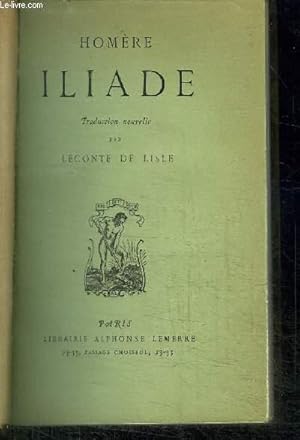

Oionoisi te pasi, Dios d’ eteleieto boule, Of-heroes, them and prey causing-them-to-become of-dogsĬausing them to become the prey of dogs and Heroon, autous de heloria teuche kynessin Pollas d’ iphthimous psychas Aidi proiapsenĪgonies and hurled many mighty shades of heroes into Hades, The accursed anger which brought the Achaeans countless Oulomenen, he myri’ Achaiois alge’ etheke,Īccursed, that countless to-the-Achaeans agonies brought Sing, goddess, the anger of Achilles, Peleus' son, Then look more closely at the Greek word order, and see if you can spot any interesting effects.Īnger sing goddess son-of-Peleus Achilles Take a few minutes to study each line and see how the English translation relates to the original Greek word order.

For each line, you are given the Greek text, then the transliteration (the Greek text rendered in English letters), then the literal word order in English and finally the good English translation. You are not expected to be able to read the Greek here (though if you’ve studied ancient Greek before, you may be able to recognise some words) a literal translation to illustrate the original word order is provided. The result is a volume that actively invites readers into Homer’s poem, helping them to understand fully the worlds in which he and his heroes lived-and thus enabling them to marvel, as so many have for centuries, at Hektor and Ajax, Paris and Helen, and the devastating rage of Achilleus.Now return to those first seven lines, but this time you’re going to look at the order of the words in Greek, and how they’ve been translated into English. A new introduction sets the poem in the wider context of Greek life, warfare, society, and poetry, while line-by-line notes at the back of the volume offer explanations of unfamiliar terms, information about the Greek gods and heroes, and literary appreciation. Lattimore’s elegant, fluent verses-with their memorably phrased heroic epithets and remarkable fidelity to the Greek-remain unchanged, but classicist Richard Martin has added a wealth of supplementary materials designed to aid new generations of readers. This long-awaited new edition of Lattimore’s Iliad is designed to bring the book into the twenty-first century-while leaving the poem as firmly rooted in ancient Greece as ever.

"Sing, goddess, the anger of Peleus’ son Achilleus / and its devastation." For sixty years, that’s how Homer has begun the Iliad in English, in Richmond Lattimore’s faithful translation-the gold standard for generations of students and general readers.


 0 kommentar(er)
0 kommentar(er)
